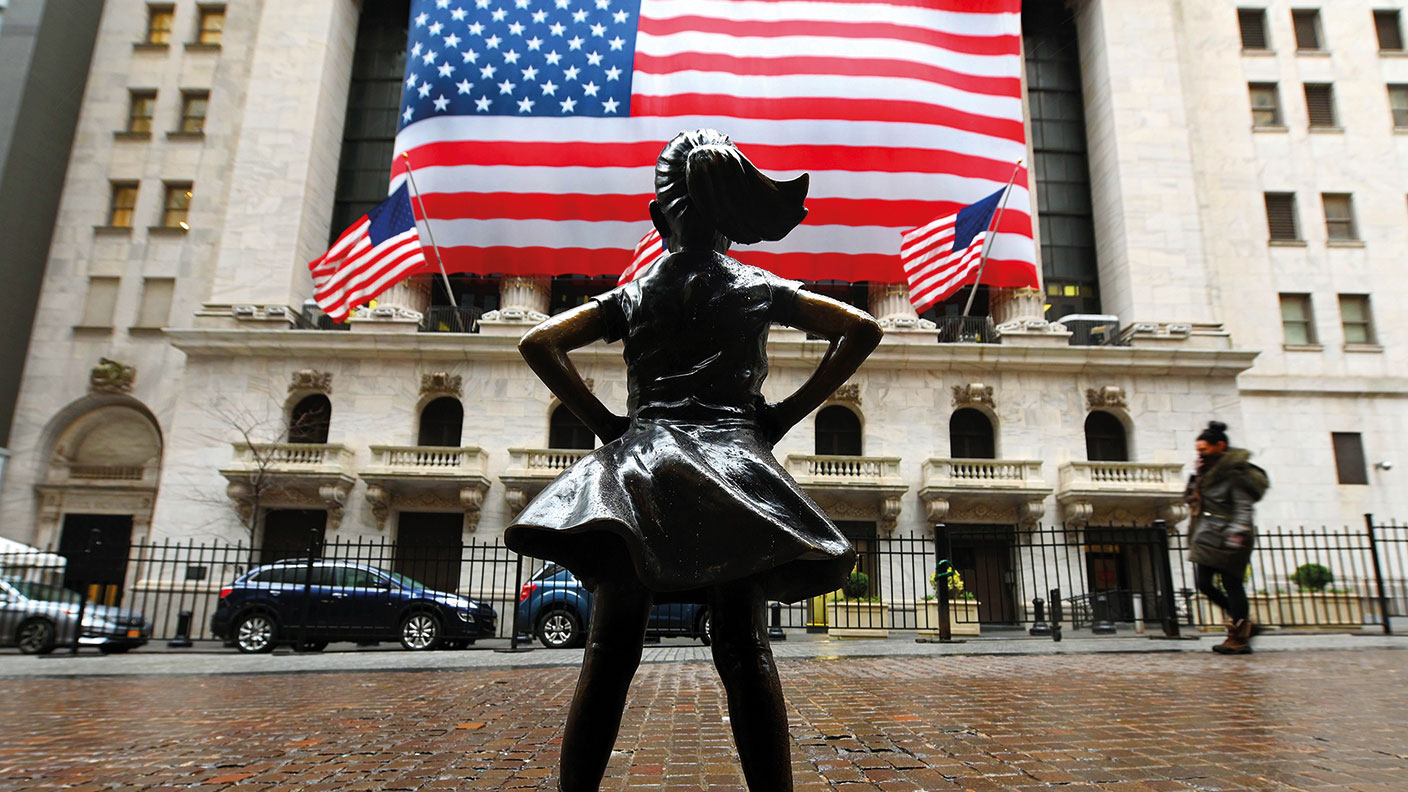Stocks surge to new record highs
After a second vaccine for Covid-19 was announced, stocks surged, with America’s S&P 500 and the MSCI World Index both hitting record highs on Monday.

Get the latest financial news, insights and expert analysis from our award-winning MoneyWeek team, to help you understand what really matters when it comes to your finances.
You are now subscribed
Your newsletter sign-up was successful
Want to add more newsletters?

Twice daily
MoneyWeek
Get the latest financial news, insights and expert analysis from our award-winning MoneyWeek team, to help you understand what really matters when it comes to your finances.

Four times a week
Look After My Bills
Sign up to our free money-saving newsletter, filled with the latest news and expert advice to help you find the best tips and deals for managing your bills. Start saving today!
“Two vaccines are better than one,” says Tara Lachapelle on Bloomberg. This week brought positive news about trials of Moderna’s vaccine for Covid-19. The update gave global markets a profitable start to the week, with America’s S&P 500 and the MSCI World Index both hitting record highs on Monday. The FTSE 100 rose to its highest level since June and has gained more than 13% so far this month.
A global bull market
The rally took a break the following day but, arguably, markets should be even more upbeat, says Nils Pratley in The Guardian. The Moderna vaccine is easier to store and transport than the Pfizer jab that made the headlines last week.
That could speed up the daunting logistical challenges of rollout. For “airlines, events and hospitality… it really matters whether a vaccination programme takes six months, a year or more”.
MoneyWeek
Subscribe to MoneyWeek today and get your first six magazine issues absolutely FREE

Sign up to Money Morning
Don't miss the latest investment and personal finances news, market analysis, plus money-saving tips with our free twice-daily newsletter
Don't miss the latest investment and personal finances news, market analysis, plus money-saving tips with our free twice-daily newsletter
The bulls are out in force. Last week’s vaccine news triggered a $44.5bn flood of inflows into global stock funds, say Eric Platt and David Carnevali in the Financial Times. That is the biggest weekly inflow in “at least two decades”.
American bulls are not finding many bargains, though. On a cyclically adjusted price/earnings ratio (Cape) of 31.26 the US market is currently more expensive than it has been for 96% of the time since 1881, says Mark Hulbert for marketwatch.com.
No wonder, then, that new research from Kevin Lansing, an adviser at the Federal Reserve Bank of San Francisco, suggests that US stocks are poised to “barely outperform inflation” over the coming decade.
Value stocks will rise
The US stock rally is already showing “signs of exhaustion”, says Cormac Mullen on Bloomberg. The market’s heavy technology weighting helped the S&P 500 outperform most other major bourses this year through early September. Yet since then the US has underperformed the MSCI World Ex-USA Index by 4%. The baton has now passed to markets in Europe and Japan, which boast a bigger stable of value stocks (see page 20).
Since 2009 the MSCI USA Value Index has returned 246%, against 661% for the equivalent US growth index, says Jon Sindreu in The Wall Street Journal. Value seems due a catch-up rally, but history suggests that such periods don’t last very long. After their re-opening bounce, “old economy” shares are likely to face the same problems as before Covid-19: “ultra-low interest rates”, poor returns on equity and, for financial stocks, “strict banking regulation”.
Vaccine news could bring higher interest rates than the market expects, says the Financial Times. Eye-watering valuations are partly the result of years of easy central-bank money. Yet US ten-year Treasury bond yields have been ticking up of late, reflecting falling bond prices. This suggests greater confidence that growth will return and long-term interest rates will rise. “Lower-for-longer” interest rates may not stay low for quite so long after all.
Get the latest financial news, insights and expert analysis from our award-winning MoneyWeek team, to help you understand what really matters when it comes to your finances.
Alex is an investment writer who has been contributing to MoneyWeek since 2015. He has been the magazine’s markets editor since 2019.
Alex has a passion for demystifying the often arcane world of finance for a general readership. While financial media tends to focus compulsively on the latest trend, the best opportunities can lie forgotten elsewhere.
He is especially interested in European equities – where his fluent French helps him to cover the continent’s largest bourse – and emerging markets, where his experience living in Beijing, and conversational Chinese, prove useful.
Hailing from Leeds, he studied Philosophy, Politics and Economics at the University of Oxford. He also holds a Master of Public Health from the University of Manchester.
-
 Early signs of the AI apocalypse?
Early signs of the AI apocalypse?Uncertainty is rife as investors question what the impact of AI will be.
-
 Reach for the stars to boost Britain's space industry
Reach for the stars to boost Britain's space industryopinion We can’t afford to neglect Britain's space industry. Unfortunately, the government is taking completely the wrong approach, says Matthew Lynn